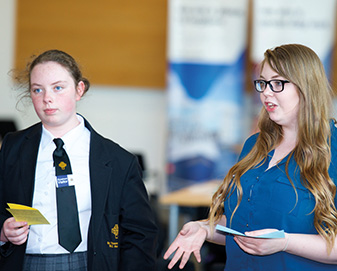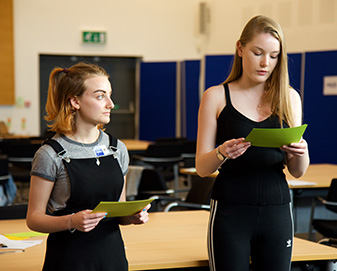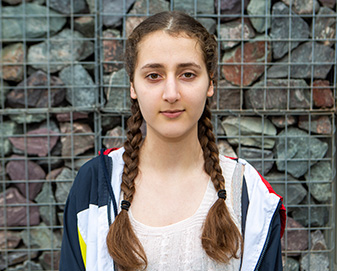Schools, Colleges & Universities
The Citizen Researchers based their recommendations on the views of young people at a wide range of schools, colleges and universities. They include existing practice that works and areas where change is needed. The recommendations are presented in no particular order.
Provide compulsory education on mental health from a young age

Young people want compulsory mental health education to be taught in PSHE or citizenship classes.
These classes should cover topics about mental health itself, such as spotting the signs of problems, getting help, and coping mechanisms. They should also cover related topics. These include:
- Self-esteem;
- Drug use and addictions;
- Healthy relationships, including physical and verbal self-defense;
- Expectations of masculinity;
- Social media.
Education on healthy relationships should start in primary school, with greater information from Year 7 onwards. It should help young people understand how to make their relationships healthy, not just what healthy and unhealthy relationships are.
Schools should choose teachers for these classes who are comfortable discussing the topics. These teachers should receive appropriate training.
Use resources co-designed by LGBTQ+ young people
Young people want their LGBTQ+ peers to be involved in designing session plans and resources for schools.
Sex education should be taught in a way that addresses and includes everyone across the spectrum of sexual identities. LGBTQ+ identities, rights and history should be reflected at relevant points across the curriculum.
If education does not include relevant and realistic knowledge for both LGBTQ+ and non-LGBTQ+ people, then some students will feel alienated and confused.
Raise awareness of mental health services and resources available both inside and outside of the institution
Young people want schools, colleges and universities to distribute information about mental health services and resources to all students. This information should be clear and simple. It should be provided discreetly (e.g. through email bulletins and posters on the back of toilet doors) and publicly (e.g. in assemblies and on noticeboards). Awareness raising within primary schools should include resources for children to take home to their parents.
Young people also want schools to hold an annual ‘Mental Health Awareness Day’.
Provide activities that support mental wellbeing and resilience

Young people want schools, colleges and universities to run extra curricular activities such as yoga, mindfulness, and group sessions. The group sessions should provide a space where young people can discuss key issues, including self-care, coping mechanisms and how to manage stress. Some of these activities should be youth-led.
Within the school day, young people want schools to have designated areas for relaxation and stress-relief. Young people suggested common rooms for each year group, or peaceful places with calming music and sensory stimulation. These would also provide a place where young people could cool off if they were angry. Young people want at least half an hour a week within the timetable to be dedicated to de-stressing. This should be through recreational and wellbeing activities such mindfulness, yoga, and self-care.
Help remove and mitigate pressures around revision, exams and the future
Young people face significant pressures around exams and choices about their future. Young people want schools to help them understand how to revise. This includes what they should focus on and different ways of revising. They want schools to run revision clubs and sessions. These should include breakfast clubs to help make sure students eat something and can talk to teachers about what’s worrying them before the school day starts. In some cases schools should provide young people with individually-tailored, person-specific revision plans. Revision materials should be provided both online and offline to suit different learning preferences. They should be easily accessible and there should be enough to go round.
Young people want there to be more visits to universities, colleges and apprenticeships to help them make decisions about their future. These visits would provide them with more information about the different options available.
User peer-to-peer support to help improve mental wellbeing
Young people want schools to train older students aged 16+ to run peer mentoring and support groups. Group sessions should be about awareness raising or activities designed to promote wellbeing. Mentoring sessions should support young people facing particular challenges, for example those who are being bullied or falling behind. Many young people find it more personal and relatable to talk to someone of a similar age, at least at first.
Ensure support within the institution is accessible, discreet and professional

Young people want schools to employ specialist and proactive staff. These staff should be linked to local mental health services. School counsellors should be accessible to all students during school hours, via booked appointments, drop-ins, and online.
Young people want to be able to access support in a way that protects their privacy. It should be possible to book appointments with school counsellors via an online booking system, and to specify a location for the first meeting. Students at schools, colleges and universities should have 1-2-1s with tutors, giving them someone to talk to outside of home. These conversations and the counselling sessions should be private and confidential.
Take account of mental wellbeing in school rules
Young people want schools to embed mental wellbeing within their rules. It should be allowed for young people to have a bad day or a bad moment. Young people are humans not robots, and want to feel better understood. Schools should also consider underlying issues before giving punishments. Where a problem is caused by, for example a young person’s caring responsibilities, punishment may not be an appropriate or helpful response.
Young people want schools to take bullying more seriously, including homophobic and transphobic behaviour. Simply having a zero tolerance policy written down does not solve the problem. Schools need to take action. Schools should also provide more support to bullies, considering what might be underlying their behavior, not just what they’ve done wrong.
Give young people a voice
Young people want to have a voice within school. Schools should recognise that young people’s opinions are important and listen to them. This could be through school councils if their members include a wide range of young people, or through mini MH:2K-style processes.
Schools should work with bullies and the bullied to co-create their approach to tackling bullying. They should listen to young people’s views about whether anti-bullying efforts are working.
Are better funded
Young people are concerned that schools will not be able to meet their recommendations without greater funding. They want to see national action on this issue.
Skip to navigation